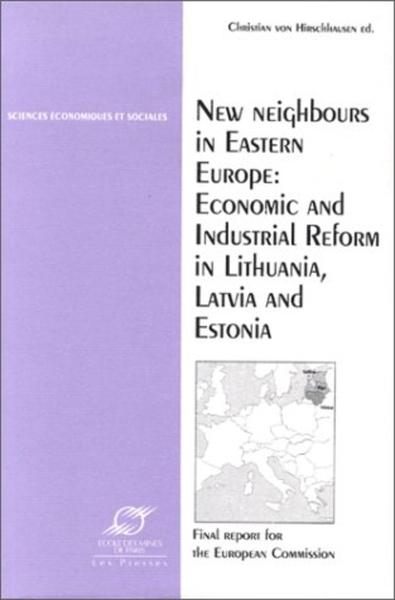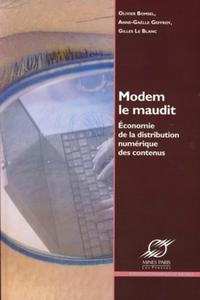Nous utilisons des cookies pour améliorer votre expérience. Pour nous conformer à la nouvelle directive sur la vie privée, nous devons demander votre consentement à l’utilisation de ces cookies. En savoir plus.
New neighbours in Eastern Europe
EAN : 9782911762093
Paru le : 1 sept. 1998
-
 Livraison gratuite
Livraison gratuite
en France sans minimum
de commande -
 Manquants maintenus
Manquants maintenus
en commande
automatiquement -
 Un interlocuteur
Un interlocuteur
unique pour toutes
vos commandes -
 Toutes les licences
Toutes les licences
numériques du marché
au tarif éditeur -
 Assistance téléphonique
Assistance téléphonique
personalisée sur le
numérique -
 Service client
Service client
Du Lundi au vendredi
de 9h à 18h
- EAN13 : 9782911762093
- Réf. éditeur : G76209
- Collection : SCIENCES ECONOM
- Editeur : Ecole Des Mines
- Date Parution : 1 sept. 1998
- Disponibilite : Epuisé
- Barème de remise : NS
- Nombre de pages : 264
- Format : H:240 mm L:158 mm E:15 mm
- Poids : 422gr
- Interdit de retour : Retour interdit
-
Résumé :
What happened to Lithuania, Latvia and Estonia on their way from socialist Soviet Republics to European capitalist market economies?
This book tries to answer this difficult question through a comprehensive coverage of economic and industrial reforms in the Baltic countries. Though small in size and population, the three have recovered their strategic position on the interface between Russia and Western Europe. As candidates for EU- and NATO-membership, Lithuania, Latvia and Estonia have become new neighbours in more than one sense, not only for Central Europe, but for Western Europe as well.
Just like in the rest of Central and Eastern Europe, there was no way to avoid the radical break between Soviet socialism and post-socialism, i.e. the emergence of a capitalist market economy. In macroeconomic terms, the Baltic countries have moved from depression to rapid growth within five years. The real difficulties consisted - and still consist - in structural reforms, on the enterprise level, on the level of newly emerging networks, and on the institutional surrounding: the science & technology system, competition policy, banking and financial institutions.
This book presents the result of an expert study financed by the European Commission, and conducted jointly by Lithuanian, Latvian, Estonian, British and French institutions. Based upon on-site research, it covers macro and industrial reforms as well as case studies of selected branches and enterprises. The reader gets a comprehensive overview of the unique first post-socialist years of the Baltic economies, and the conditions of development of our "new neighbours".
Christian von Hirschhausen was, at the time of writing, researcher at the Centre for Industrial Economics (CERNA) at the Ecole des Mines de Paris. He is now senior researcher at DIW-German Institute for Economic Research (Berlin) and member of the German Group of Advisors to the Government of Ukraine (Kyjiw).
The Centre for Industrial Economics (CERNA) at the Paris School of Mines deals with the processes by which enterprises and markets operate, and the role played by the state therein. As practised at CERNA, industrial economics involves an inductive approach; research is mainly based on surveys and case studies conducted with companies. The current volume was developed in the division "State, Post-Socialism, Capitalism and Industry", created right after the fall of the Berlin wall in 1989.














